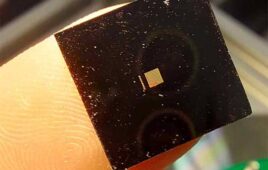 A review of FDA adverse event reports has revealed that some Abbott (NYSE:ABT) implantable cardioverter defibrillator (ICD) leads were much more likely than those made by Boston Scientific or Medtronic to fail due to internal insulation breaches (IBR).
A review of FDA adverse event reports has revealed that some Abbott (NYSE:ABT) implantable cardioverter defibrillator (ICD) leads were much more likely than those made by Boston Scientific or Medtronic to fail due to internal insulation breaches (IBR).
Researchers at the Minneapolis Heart Institute Foundation combed through the FDA MAUDE database from 2008 to 2018 for reports of IBR breaches and other ICD failures. They found that insulation breaches led to 93% of Abbott’s (formerly St. Jude Medical’s) Durata pacemaker lead failures. All 11 failures to treat ventricular tachycardia/ventricular fibrillation were caused by high-voltage shorts between the proximal and distal right ventricular coil cables or sensing conductor. Testing showed low values of high-voltage impedance in three of the leads after a shock or an aborted shock or by an alert, they wrote in an article published in the journal Heart Rhythm.
These results compared with few IBR-induced failures in Medtronic’s Sprint Quattro Secure leads and none for Boston Scientific’s Endotak Reliance leads for the same time period in the MAUDE database.
Abbott officials in response faulted the accuracy of FDA’s adverse-event data.
“The MAUDE database is not a comprehensive representation of product performance,” the company said in a prepared statement. “Real-world performance data is a far more accurate view of a product’s performance. Every year our real-world performance data consistently show our cardiac leads are some of the industry’s most durable and reliable leads. They have a strong history of performance and safety and one of the industry’s lowest rates of lead insulation breach.”
The researchers questioned whether the Durata insulation failures may be linked to those observed in St. Jude’s Riata and Riata RT pacemaker leads. St. Jude pulled the silicone-coated Riata and Riata ST leads in 2010 after finding that some of the internal conductors had worn through their insulation, a failure that could result in patients receiving unwanted shocks. In November 2011, the company warned that the Riata leads appeared to fail more frequently than previously reported, leading to a recall labeled Class I by FDA. The company settled a raft of Riata product liability lawsuits in February 2015, ahead of its $25 billion acquisition by Abbott in 2017.
“The most serious IBRs are those that disrupt the silicone, abrade the fluorine-based protective coating, and short-circuit conductors to each other or to the shocking coils,” the Minneapolis Heart Institute researchers wrote. “These IBRs may be clinically silent or cause detectable malfunctions. A short involving a conductor to a pace-sense electrode may present as noise/oversensing with inappropriate therapy… A short between the proximal superior vena cava … shock coil and the cable to the distal right ventricular … shock coil prevents delivery of a lifesaving shock; this mechanism was responsible for Riata device-related deaths.”
About 290,000 patients in the United States and others worldwide have active Durata leads, according to Abbott. It’s difficult to determine if the MAUDE database accurately represents all medical device failures, as reporting is voluntary and there may be duplicate reports of a single event. The majority of failed leads are discarded, with only 4–10% of removed leads returned to the company for analysis, the researchers noted.
“Thus, it is highly probable that the actual number of Durata leads that have failed due to IBR is substantially higher than the 137 leads in this report,” the researchers said. “Moreover, we do not know how many additional (high-voltage) failures might have been identified if all Durata leads had been subjected to (high-voltage) shock testing.”
Further, they said, IBRs that result in death may remain unknown unless the device is examined post-mortem and the results are reported to FDA.
FDA slammed St. Jude Medical in 2011 after inspections of a California plant that made the Durata leads found the company’s “design verification activities were inadequate” and multiple issues with the Durata leads’ process validation protocol.
The Minneapolis researchers did not recommend routine prophylactic replacement of Durata leads. They advised physicians to ensure that patient alerts are activated and that patients understand their significance. They also recommended that the ICDs should be programmed to recognize non-physiologic noise and minimize inappropriate therapy.
They also noted that dual-coil Durata models are more likely to develop IBRs and suggested excluding the proximal coil from the shock pathway.




